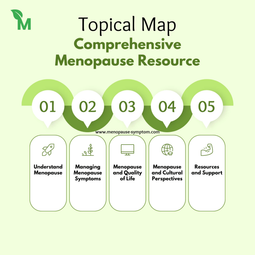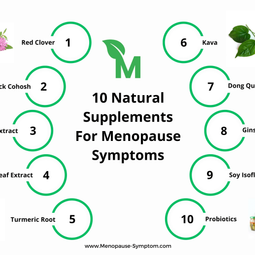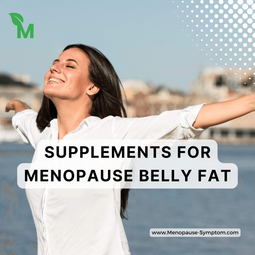The Best Menopause Supplements To Use Today
On
24/10/2024Reading time:
1 min
Summary:
Remember, it's essential to consult with a healthcare professional before starting any new supplement or making significant lifestyle changes. Natural remedies can be a valuable tool for managing menopause symptoms, but individual results may vary.
Every year, millions of women in the U.S. experience menopause. This transition often brings uncomfortable symptoms like hot flashes, mood swings, and night sweats.
Thankfully, there are natural ways to manage these symptoms. While traditional treatments like hormone replacement therapy (HRT) and antidepressants can be effective, many women prefer a more holistic approach.
Here are some natural remedies for menopause:
Dietary changes: Eating a balanced diet rich in fruits, vegetables, and whole grains can help regulate hormones and reduce symptoms.
Lifestyle changes: Regular exercise, stress management techniques, and adequate sleep can improve overall well-being and alleviate menopausal discomfort.
Hormone-balancing supplements: Herbal remedies like black cohosh, soy isoflavones, and red clover can help regulate hormone levels.
Mind-body practices: Yoga, meditation, and deep breathing exercises can reduce stress and improve mood.
Managing Weight Gain During Menopause
Weight gain is a common concern for many women during menopause. While it can be challenging, there are steps you can take to manage it.
Here are some effective strategies:
Eat a balanced diet: Focus on fruits, vegetables, lean proteins, and whole grains.
Limit processed foods and sugary drinks: These can contribute to weight gain and other health problems.
Stay hydrated: Drinking plenty of water can help control cravings and support overall health.
Consider supplements: Vitamins D, calcium, and iron can be beneficial for menopausal women.
Prioritize fiber: Aim for 21-25 grams of fiber per day to aid digestion and reduce cravings.
Exercise and Supplements
Exercise is crucial for overall health and can significantly impact menopause symptoms. Regular physical activity can:
Reduce weight gain: Increase muscle mass and boost metabolism.
Improve bone health: Strengthen bones and reduce the risk of osteoporosis.
Alleviate hot flashes: Exercise can help regulate body temperature and reduce the frequency of hot flashes.
Supplements can also be beneficial in managing menopause symptoms. While consulting with a healthcare professional is recommended, some popular options include:
Hormone-balancing supplements: Herbs like black cohosh and soy isoflavones can help regulate hormone levels.
Vitamin D and calcium: Essential for bone health and overall well-being.
Omega-3 fatty acids: Can reduce inflammation and improve heart health.
To manage hot flashes:
Stay cool: Keep your environment cool and dress in layers.
Avoid triggers: Identify and avoid foods or beverages that worsen symptoms.
Manage stress: Practice relaxation techniques like yoga or meditation.
Quit smoking: Smoking can exacerbate hot flashes.
Maintain a healthy weight: Excess weight can contribute to more severe hot flashes.
Natural Hormone Replacement for Menopause
When it comes to choosing natural supplements for menopause, it's important to research and select products with evidence-based ingredients. Here are some popular options:
Red clover: Contains isoflavones, which can help alleviate hot flashes, night sweats, and sleep issues.
Black cohosh: Effective for reducing hot flashes without affecting hormone-sensitive tissues.
Ginseng: May improve mood, energy levels, and general well-being.
Kava: Can help manage anxiety but may have potential liver risks.
Dong quai: Reported to reduce hot flashes and improve skin health.
Soy isoflavones: Provide phytoestrogens and can be taken as supplements or through soy-based foods.
Turmeric: A powerful anti-inflammatory with phytoestrogenic properties.
Moringa: Rich in vitamin E and known for its antioxidant and anti-inflammatory benefits.
Probiotics: Support gut health, hormone balance, and nutrient absorption.
Always consult with a healthcare professional before starting any new supplements. While these options can be beneficial, individual results may vary.
By incorporating exercise and appropriate supplements into your routine, you can effectively manage menopause symptoms and improve your overall quality of life.




